The Top 20 British Boxers of All-Time
Stew FlatsCorrespondent IApril 13, 2011The Top 20 British Boxers of All-Time
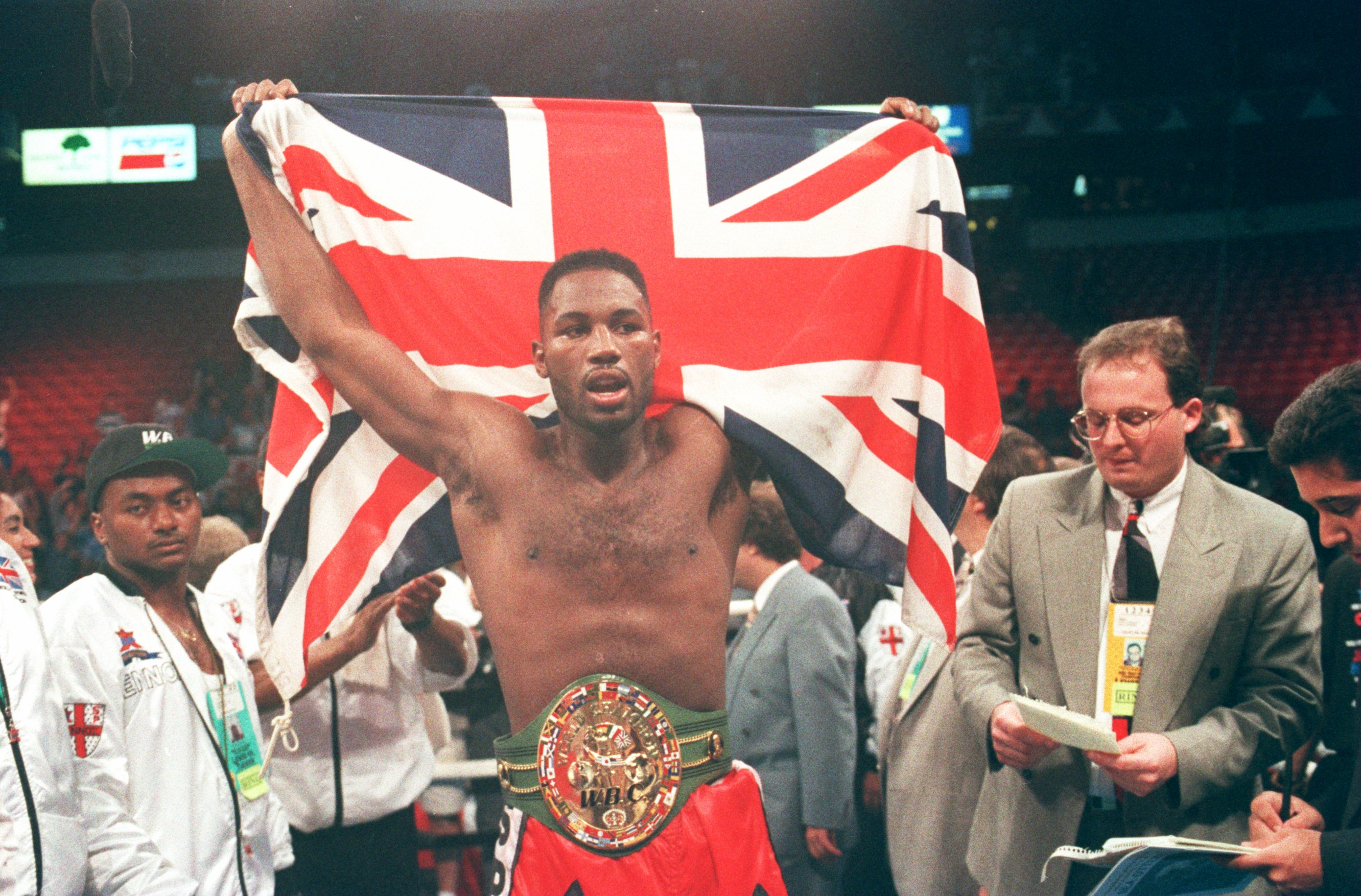
British Boxing is currently enjoying a golden spell. This week, Amir Khan will defend his WBA Light-Welterweight World Championship against fellow Brit Paul McCloskey in Manchester, England.
In addition, Britain also boasts a number of reigning world champions across the weight classes, including David Haye, Carl Froch and Ricky Burns.
To mark the occasion this weekend, here at B/R we are providing you with a backdrop to the fight by listing and ranking the greatest 20 British Boxers in history.
If we have missed your favorite, feel free to add names below. Also let us know who you would have fill the coveted No. 1 spot on this list.
20. Duke McKenzie

Englishman Duke McKenzie is a three-division world champion, two-division British champion and also a European champion.
McKenzie made his pro debut in 1982 with a second-round stoppage win over Charlie Brown. He won the British title by beating Danny Flynn in 1985, before beating Charlie Magri a year later for the European crown.
Duke vacated both belts to challenge Rolando Bohol for the IBF Flyweight Title, winning via an 11th-round stoppage.
McKenzie won his first world title in 1991 when he outpointed Gaby Canizales for the WBO Bantamweight Title. After losing that title, McKenzie moved up in weight to beat Jesse Benavides for the WBO Super Bantamweight crown.
In 1993 McKenzie became a four-weight champion when he stopped John Davison to win the British Featherweight Title.
McKenzie retired with a career record of 39-7 with 20 knockouts.
19. John Conteh
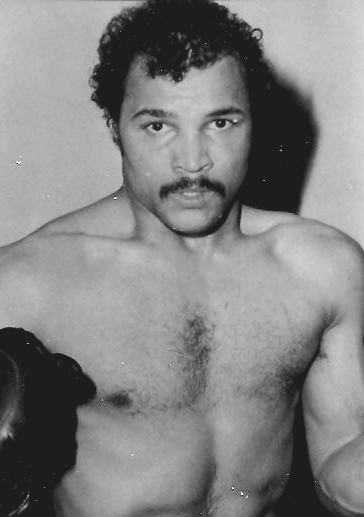
Liverpool-born John Conteh was an entertaining character both in and out of the ring. It was not uncommon for Conteh to make the back pages with his boxing, and the front pages for his playboy lifestyle.
At the age of 19, the talented Conteh won a gold medal at the Commonwealth Games and turned professional soon after. In 1974, Conteh beat Jorge Victor Ahumada over 15 rounds to capture the WBC Light Heavyweight Championship.
Conteh held the title for four years before being stripped for refusing to take part in a mandatory defense. Conteh failed in two efforts to win back the world title against American Matthew Saad Muhammad. The Scouse fighter retired with a professional record of 34-4-1, but many experts believe his playboy lifestyle meant he never reached his true potential as a fighter.
18. Frank Bruno
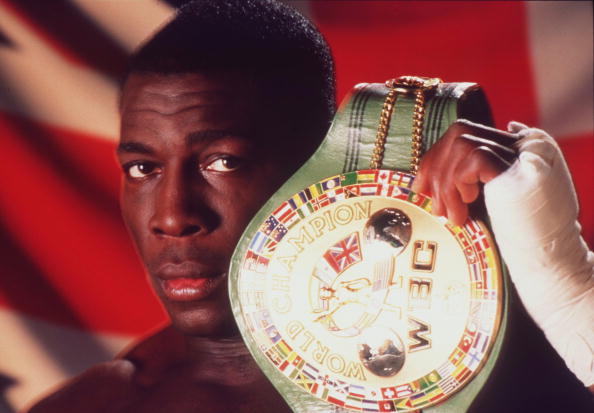
London-born Heavyweight Frank Bruno burst onto the professional scene in 1982 and went on to win his first 21 fights all by way of knockout. Bruno had his winning streak halted by James "Bonecrusher" Smith, but recovered to win the European Heavyweight title with a KO over Anders Eklund.
Bruno knocked out former world champion Gerrie Coetzee in the first round to earn a title shot, but was stopped by Tim Witherspoon despite leading on all scorecards.
Bruno racked up many wins but failed in two more world title shots when he was beaten by Mike Tyson (KO5) and Lennox Lewis (TKO7).
Just when he seemed to be consigned to history as a nearly man, Frank made his breakthrough. He won the WBC World Title from Oliver McCall with a points decision victory.
Bruno lost to Mike Tyson by a third-round KO in his first defense and went on to retire from the sport with a record of 40-5 (38 KO's). Bruno's 38 KO's in 40 wins are one of the highest knockout percentages in Heavyweight Boxing history.
17. Sir Henry Cooper
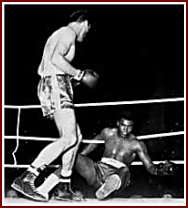
Sir Henry Cooper was born in London, England and overcame adversity from a young age. Cooper grew up during the Second World War and his first fights came in the school playground when he defended his twin brother George. Henry's twin George tragically died at the age of 11, a traumatic event that left a deep sadness in Henry.
Cooper amassed a career record of 40-14-1 with 27 knockouts, many of which were scored using the left hook that was christened "Enry's 'Ammer." Cooper won the British, European and Commonwealth Heavyweight titles during his storied career, but he is best remembered for two fights he did not win against the greatest fighter of all-time.
Cooper fought Cassius Clay in 1963 at Wembley Stadium. The fight was a scrappy affair, and a key moment came at the end of the fourth round. Cooper landed a left hook that sent Clay sprawling through the ropes. Angelo Dundee helped Clay to his stool and revived him with smelling salts, something that was a violation of rules at that time. Dundee also forced a delay to repair a tear in Clay's glove, a tear some suspect Dundee created to stall for time.
A rejuvenated Clay came out for the fifth round and opened up a cut on Cooper's eye. Clay relentlessly attacked to force a stoppage on cuts when Cooper was ahead on the scorecards.
Clay, now known as Muhammad Ali, faced Cooper again in 1966 while defending his World Heavyweight Title. Clay adopted a more cautious approach and Cooper again suffered a stoppage defeat on cuts despite being ahead on the scorecards.
Cooper won the respect of Ali, who called him to reminisce on the 40th anniversary on the first fight. Ali once remarked on the first fight by saying Cooper had hit him "so hard my ancestors in Africa felt it."
Sir Henry won the prestigious BBC Sports Personality of the Year Award (1967 and 1970), and was knighted by the Queen in 2000 for his services to English sport.
16. Howard Winstone
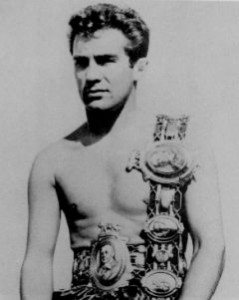
Welsh legend Howard Winstone had a storied amateur career that saw him run up a record of 83-3 and win a gold medal at the 1958 British and Empire Commonwealth Games.
Winstone turned professional in 1959, and won the British featherweight title within two years when he stopped Terry Spinks in 10 rounds. In 1963, Winstone added the European featherweight title to his résumé with a win over Alberto Serti.
Winstone held onto both his belts despite failing in three consecutive world title bids against Mexican Vicente Saldivar. At the fourth time of asking, the Welshman finally won a world title when he beat Mitsunori Seki for the vacant WBC World Featherweight crown.
Winstone retired after losing his world title in his first defense against Cuban Jose Legra.
Howard Winstone retired with a career record of 61-6 with 27 knockouts. His achievements were made all the more impressive given the fact he was predominantly a left-handed fighter after losing three fingers on his right hand during a factory accident as a teenager.
15. James Figg
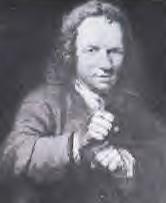
Born in Oxfordshire, Figg was raised as a fighting man. He spent his teenage years fighting in fairs and fending off all challengers who were reported as "both armed and unarmed" day after day.
The Earl of Peterborough spotted the young fighter and took him to London to embark upon a bare-knuckle fighting career. In 1719, Figg became the first English bare-knuckle champions after fending off top challengers including Tim Buck, Tom Stokes and Bob Flanders.
Figg reigned as undisputed champion for 11 years in brutal affairs that sometimes included bare-knuckle fighting and also the use of a club. The nature of the sport was especially violent back in those times, and the lack of antibiotic medicine meant that an infected cut could become fatal.
Although records were not as precise back then, the common belief is that Figg had a record of 269-1 in 270 fights. His only loss came when Ned Sutton beat him to claim the title. Figg demanded a rematch, which he won, and also went on to retire Sutton in a rubber match.
James Figg was inducted into the International Boxing Hall of Fame in 1992.
14. Tommy Farr
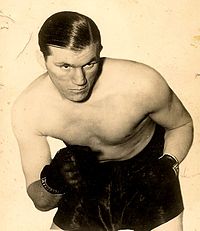
Welshman Tommy Farr amassed a career record of 126-30-13 with two No Contests.
Farr was known as "The Tonypanda Terror" and had his first recorded fight when he beat Jack Lord on points at the tender age of 12. After an unbeaten 18-fight run, Farr beat Ben Foord to become undisputed British and Empire Heavyweight Champion in 1937.
After beating Foord as well as former world champions Tommy Loughran and Bob Olin, Farr made the step up to elite world level. Farr produced upset wins over former World Heavyweight Champion Max Baer and Walter Neusel, before going on to fight the legendary Joe Louis.
Farr was a huge underdog against Louis, who came into the fight having knocked out eight of his previous nine opponents. Farr gave "The Brown Bomber" all he could handle—over 15 rounds—and Louis was awarded a narrow points victory that was greeted with jeering from many sections of the crowd.
Farr lost his next four fights after Louis and went into a 10-year retirement. Bankruptcy forced him out of retirement at the age of 36 and Tommy won the Welsh heavyweight Title. He lost the belt in his last fight and sang the Welsh National Anthem on the microphone before leaving the ring.
Tommy Farr passed away on St. David's Day in 1986, a fitting date to mark the passing of a Welsh legend.
13. Naseem Hamed
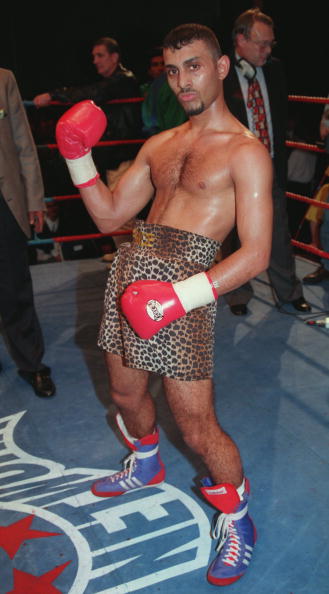
"Prince" Naseem Hamed is arguably Britain's most entertaining fighter ever. In addition to his unorthodox attacking style that saw him hold his guard down by his weight, the man known as 'Naz' became equally known for his flamboyant ring entrances. During his career, the Prince was carried to the ring on a Palanquin, entered on a Flying Carpet, and reenacted the Michael Jackson "Thriller" video.
Hamed turned professional in 1992 and took only three years to win the WBO featherweight title when he beat Welshman Steve Robinson in front of a hostile Cardiff crowd.
The Prince continued his winning streak and made his USA debut against former world champion Kevin Kelley in New York. In a contest that won the Ring Magazine's "Fight of the Year," Hamed got up off the canvas three times to knockout Kelley in the fourth round.
Hamed ran his record to 35-0 (31 KO's) with wins over Wilfredo Vazquez, Wayne McCulloch and Mexican World Champion Cesar Soto.
In 2001, Hamed suffered his first and only loss at the hands of Mexican legend Marco Antonio Barrera. Hamed lost a unanimous decision after being out-brawled by the gritty Mexican.
Hamed returned to the ring in May, 2002 to earn a Unanimous Decision victory over European Champion Manuel Calvo. The win over Calvo turned out to be the last fight for Hamed, who retired soon after with a 36-1 record.
The one question about Hamed is his failure to rebound from his sole defeat. However, his body of work throughout his career, and the style and flamboyance with which it was achieved will ensure he is remembered forever.
12. Lloyd Honeyghan
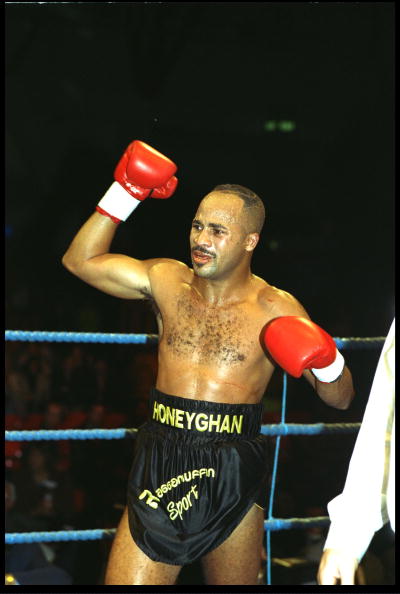
"The Ragamuffin Man" produced one of the greatest upsets in British boxing history when he went to
Atlantic City, NJ and upset heavily favored American Donald Curry.
Curry was dismissive of his little-known opponent in pre-fight and asked "Who is this Ragamuffin?" at a press conference. It was a nickname Honeyghan would carry with relish for the rest of his career.
Honeyghan defended his title successfully on multiple occasions before losing his belt when he was stopped because of a cut against Jorge Vaca. Honeyghan became only the second British boxer to regain a world title when he knocked out Vaca in a return match.
Honeyghan also showed himself to be a man of strong principles. Disgusted with the WBA allowing fights to take place in Apartheid South Africa, Honeyghan vacated his title rather than defend it against South African Harold Volbrecht. Soon after this incident, the WBA stopped sanctioning fights in South Africa.
At the end of his career, Honeyghan retired with a record of 43-5 with 31 KO's.
11. Barry McGuigan
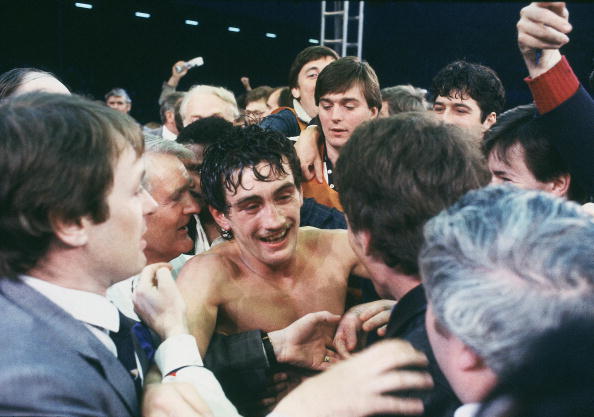
The "Clones Cyclone" represented Northern Ireland in the 1978 Commonwealth Games, and also represented Ireland in the 1980 Olympics.
McGuigan turned professional in 1981, and a year later beat Young Ali in a fight that would leave an indelible mark on McGuigan. Ali was knocked out in the sixth round, and after the fight fell into a coma he would never come out of.
McGuigan fought on with a heavy heart and captured both the British and European championships over the next six months. In 1985 he received his first world title shot, and triumphed over Eusebio Pedroza by unanimous decision.
Barry defended his belts with wins over Bernard Taylor and Danilo Cabrera, before he travelled to Las Vegas to face Stevie Cruz. McGuigan was knocked down twice and lost a points decision, after the fight the Irishman suffered dehydration and was hospitalized.
McGuigan retired with a career record of 32-3 (28 KO's) and was inducted into the International Boxing Hall of Fame in 2005.
10. Ricky Hatton
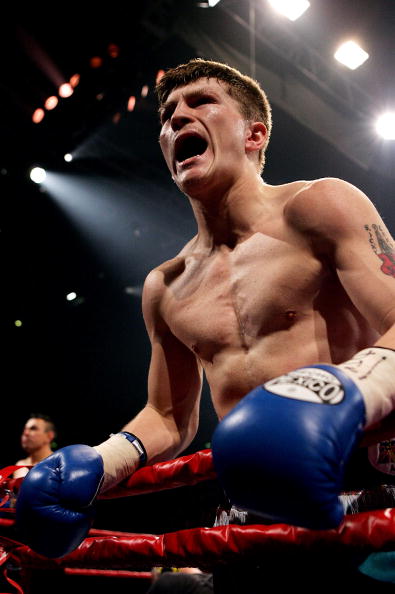
"There's only oooooooooone Ricky Hatton."
Ricky "The Hitman" Hatton is one of the most popular figures in the history of British Boxing. Regardless of where he fought, Hatton would bring an army of passionate Manchester fans with him that would tear the house down in support of their man.
The charismatic Hatton also had a habit of eating junk food and binging on alcohol when not in training, and would balloon up in weight between fights often shedding 30 to 40 pounds in training camp preparation. This habit earned him the nickname "Ricky Fatton."
Hatton is also a huge fan of Manchester City Football Club, and entered the ring to their anthem "Blue Moon."
The Manchester-born fighter turned professional in 1997 and fought at Madison Square Garden in only his second fight. In 2001, Hatton won the WBU Light Welterweight Title from Tony Pep with a fourth-round stoppage. He defended the belt successfully against the likes of Freddie Pendleton, Eamonn Magee and Ben Tackie before he produced one of his biggest career wins in 2005.
Hatton was a huge underdog when he faced Kostya Tszyu in 2005, as the Australian fighter was one of the top pound-for-pound fighters in the world at the time. Hatton put relentless pressure on Tszyu all night, and won the fight when the Australian failed to answer the bell for the 12th round.
Later that year, Hatton stopped Carlos Maussa in nine rounds and was given the prestigious Ring Magazine "Fighter of the Year" award for 2005.
Hatton then moved up in weight and won the WBA World Welterweight Title with a win over Luis Collazo, and then followed that up with gritty wins over Juan Urango and Jose Luis Castillo. The win against Urango gave Ricky the IBO and IBF Light Welterweight Titles, while the win over Castillo saw Hatton hand the Mexican fighter the only knockout loss of his career to date.
In 2007, the Hitman lost a much-hyped fight with Floyd Mayweather Jr. by way of a 10th-round TKO. He bounced back to win the IBO Light-Welterweight Title from Juan Lazcano, and also stop Paulie Malignaggi in Las Vegas.
Hatton was brutally knocked out by the great Manny Pacquiao in 2009 in his final fight.
Over the course of his career, Hatton held six different world titles, including the prestigious Ring Magazine "World Light Welterweight Belt." He also had a career record of 45-2 (35 KO's).
9. Nigel Benn
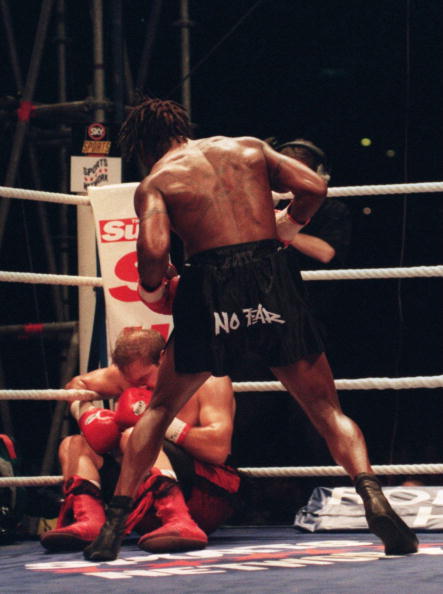
English fighter Nigel "The Dark Destroyer" Benn had a storied career that saw him world titles at two different weight classes.
Benn went 41-1 in an impressive amateur career before turning professional in 1987. Benn blazed a trail in his early career firing his way to 22 consecutive KO wins.
Benn lost to Michael Watson (KO6) before getting back on track by beating Jorge Amparo on points in Atlantic City, New Jersey.
Nigel returned to Atlantic City to win the WBO Middleweight Championship by knocking out Doug DeWitt in eight rounds. Benn defended his title successfully with a first round knockout of Iran Barkley, before he would bump into his most-hated rival.
Nigel Benn and Chris Eubank is a rivalry that has gone down in British sporting history. Benn adopted the role of working class hero, while arrogant aristocrat Eubank had few admirers anywhere.
Eubank stopped Benn in the ninth round in a spectacular brawl, a result that reduced the Dark Destroyer to tears.
Benn responded with a six-fight winning streak before taking the WBC Super-Middleweight Title away from Mauro Galvano by way of fourth-round KO. Benn successfully defended three titles then held onto it after a vicious rematch with Eubank ended in a draw.
Benn was underdog in the eyes of many pundits when he defended against American Gerald McLellan in 1995. Benn beat McLellan by 10th-round KO but the fight has tragic consequences. After suffering a number of heavy blows, McLellan was rushed to hospital with a blood clot in his brain and remains in a wheelchair to this day.
Thulani "Sugar Boy" Malinga would take Benn's title away, and the Dark Destroyer's career ended after two failed world title shots against Steve Collins. Benn retired with a career record of 42-5-1 (35 KO's).
8. Chris Eubank
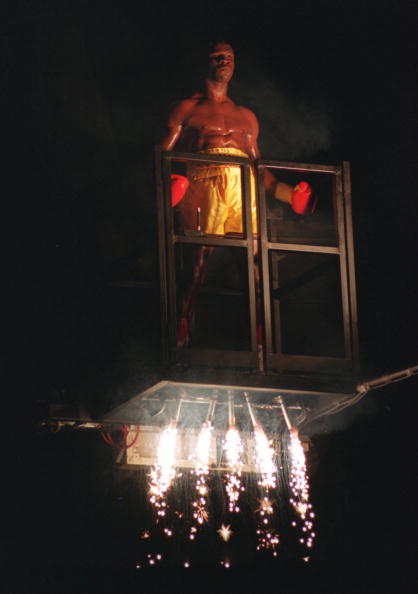
Flamboyant showman Chris Eubank left an indelible mark on British boxing history. Eubank was often viewed as arrogant and aloof by the general public, but his popularity grew as he racked up the wins.
Despite the image he conveyed as an upper-class snob, Eubank grew up in poverty and spent most of his life as a fighter. He was reportedly suspended 18 times in one year from school and then expelled despite claiming he was fighting to protect other kids from bullies.
At the age of 16, young Chris was off the rails and had problems with drugs, alcohol and shoplifting. His father made him to move to the USA and Eubank discovered boxing in the tough South Bronx district of New York.
Eubank won his first 28 fights in a spectacular start to his professional career. That run included capturing the WBC International Title in 1990, knocking out Reginaldo Dos Santos in 20 seconds (including the 10 count), and beating the heavily favored Nigel Benn for the WBO Middleweight World Title.
Eubank's rivalry with Benn is widely regarded as the greatest in the history of British Boxing, and caught the imagination of the British public who flocked to see the rivals go head to head.
After victory against Benn, Eubank produced three successful defenses, including a victory over Michael Watson to end his Middleweight career at 28-0. Eubank would fight the rest of his career at Super Middleweight.
His first fight at Super Middleweight would be a rematch win over Watson, but the fallout from that fight mean Eubank would mentally never be the same. After a brutal 12th round TKO, Watson spent 40 days in a coma and underwent six brain surgeries. Watson also suffered permanent partial paralysis, and Eubank would never again display the true desire to hurt his opponent.
Eubank was unbeaten in his 11 fights after Watson, but produced only one knockout. That run included a draw in a rematch against his bitter rival Benn.
Eubank suffered all five of his career losses in his last nine fights, being beaten twice by Steve Collins and once by a young Joe Calzaghe.
When all was said and done Eubank had a career record of 45-5-2, was unbeaten at Middleweight and was a World Champion for over five years. However, many pundits wonder how his career was limited by the mental scars of the first Watson fight.
7. Ken Buchanan
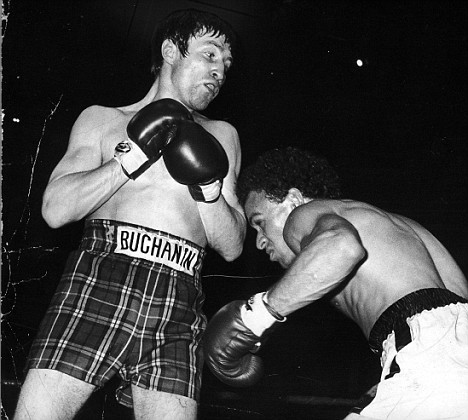
Ken Buchanan is widely considered Scotland's greatest ever fighter. Known as "The Fighting Carpenter," Buchanan won the ABA Featherweight Championship before turning professional.
Ken won his first 23 fights, and then announced his arrival on the elite scene by knocking out Maurice Cullen to win the British Lightweight Title.
Buchanan received his first world title shot in 1970, and traveled to Puerto Rico to take the world title away from Ismael Laguna by way of a 15-round decision.
Over the next two years, the Scot would defend his title successfully before fighting the great Roberto Duran. Buchanan lost to Duran by way of a controversial 13th-round stoppage that some believe to have been caused by a low blow. Ken bounced back quickly from the Duran loss to knockout former three time World Champion Carlos Ortiz, and then beat Chang Kil Lee.
Buchanan won the British Title with a hard-fought victory over fellow Scot Jim Watt, and also captured the European title when he outpointed Antonio Puddu in 1973.
When he retired, Buchanan held a career record of 61-8, and he was enshrined into the International Boxing Hall of Fame in 2000.
6. Randolph Turpin
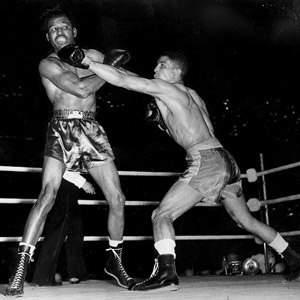
English-great Randolph Turpin is responsible for what is considered the biggest upset in British boxing history, when he beat the great Sugar Ray Robinson in 1951.
Turpin turned professional in 1946 and reeled off 16 straight wins. In 1950 he captured the British Middleweight Title with a fifth round Knockout of Albert Finch. Randolph then went on to win the European Middleweight Title in February 1951 by knocking out Luc van Dam in the first round.
Later that year, Robinson traveled to London as an overwhelming favorite, but Turpin stunned the world by outpointing the American in convincing fashion to win the World Title. Robinson won back his title by 10th-round knockout in a rematch two months later.
Turpin rebounded with eight straight wins that captured the Commonwealth Middleweight and Light Heavyweight Title, and the Commonwealth and European Middleweight Title. Turpin lost in his only other world title shot to Bobo Olson.
In his later career, Turpin won the British Light Heavyweight Title twice, and also the Commonwealth Light Heavyweight Title.
Turpin finished his career with a record of 66-8-1 (45 KO's). Financial problems meant he went into professional wrestling before tragically ending his own life in 1966.
Randolph Turpin was inducted into the International Boxing Hall of Fame in 2001.
5. Lennox Lewis
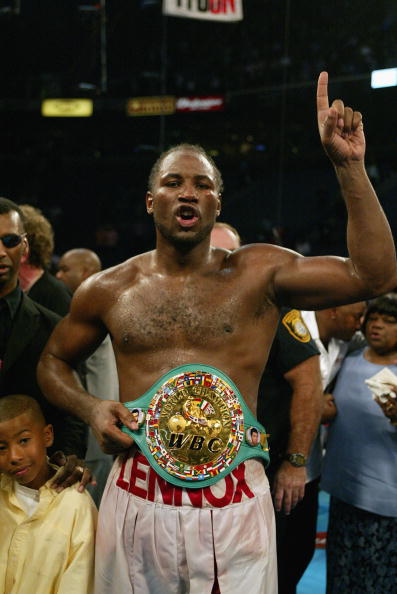
Quite simply, Lennox Lewis was the most dominant Heavyweight of his era. Lewis was born in London, England to Jamaican parents, then moved to Canada at the age of 12.
After winning a gold medal at the Olympics, Lewis returned to his native England and signed with promoter Frank Warren as he turned professional. Lewis had an unbeaten start to his professional career, winning the European Heavyweight Title from Jean Maurice Chanet, and the British Heavyweight Title from Gary Mason.
Lewis became the WBC's No. 1 contender when he knocked out tough Canadian Donovan "Razor" Ruddock inside two rounds. Champion Riddick Bowe refused to fight Lewis and vacated the belt, so on 14th January, 1993 Lewis became Britain's first World Heavyweight Champion of the 21st century.
Lewis made three successful defenses of his belt including a win in the much hyped "Battle of Britain" against Frank Bruno, where Lewis won by TKO.
Lewis lost his belt in a shocking knockout defeat at the hands of Oliver McCall, a man he would later beat by TKO in a rematch to regain the title when McCall had a mental breakdown.
Lennox then faced Evander Holyfield in a unification bout, but the fight ended in a draw despite Lennox landing 348 punches to Holyfield's 130. The sanctioning bodies ordered a rematch, and Lewis became Undisputed Heavyweight Champion of the World with a Unanimous Decision victory.
Hasim Rahman handed Lewis another upset KO loss in 2001, but Lewis bounced back to knockout Rahman in the fourth round of their rematch.
Lewis finished off his career with a career defining win over Mike Tyson, and beat Vitali Klitschko via a sixth-round stoppage.
Lewis hung up his gloves having beaten every man he ever face and establishing himself as the dominant Heavyweight Champion of his generation. His career record was 41-2-1 and he was inducted into the International Boxing Hall of Fame in 2009.
4. Joe Calzaghe
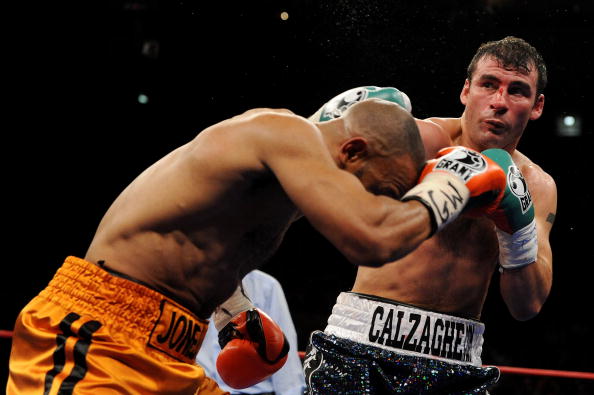
"The Pride of Wales" is one of only four European boxers to retire as an undefeated world champion.
Calazaghe made his professional debut in 1993 on the undercard of the Lennox Lewis vs. Frank Bruno fight. Within two years, Calazaghe had won the Young Boxer of the Year Award and received hefty praise from Barry McGuigan. "He punches ferociously, moves superbly and has the best of the European technique and US aggression," said the Irish former World Champion.
Joe won his first World Title on 1997, when he knocked down Chris Eubank in round one and went on to score a unanimous decision win for the WBO Super Middleweight Title.
Calazaghe racked up a number of wins with Omar Sheika and Robin Reid among his victims before facing Jeff Lacy in 2005. "Left Hook" Lacy was a much-hyped America prospect and was expected by many to give Calzaghe a tough challenge. Joe put a beating on Lacy, winning every round to beat the American by a wide points margin. Many fans believe Lacy was never the same again mentally after that beating.
In May 2007, Calazaghe unified the Super Middleweight division with a unanimous decision win over Danish great Mikkel Kessler, then moved up to Light Heavyweight to beat Bernard Hopkins and Roy Jones Jr.
Many critics claim that Calzaghe beat a "faded" Kessler and Hopkins. However, the fact that both are still performing to a world championship level to this day raises serious questions over that theory.
Joe retired having held the WBO, WBA, WBC and IBF Super Middleweight Title, and also held the Ring Magazine world titles for Super Middleweight and Light Heavyweight. Calazaghe held his WBO title for over 10 years, and retired with a career record of 46-0 (32 KO's).
3. Bob Fitzsimmons
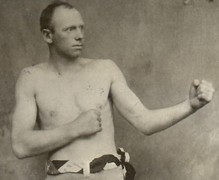
Bob Fitzsimmons was born in Cornwall, England and earned fame as the first ever man to win world championships in three different weight divisions.
Fitzsimmons turned professional in 1883 and won his first world title in 1891 when he knocked out Jack Dempsey for the Middleweight crown. Reports from the day suggested Dempsey was knocked down no less than 13 times.
Bob won the World Heavyweight Title in 1896 as he beat Irishman Peter Maher, then successfully defended the belt by knocking out "Gentleman" Jim Corbett.
In 1903 Fitzsimmons knocked out Con Coughlin and his rival tragically died the day after the fight. Soon after Bob would make history by winning the Light Heavyweight Title and become the first ever three division world champion.
Bob Fitzsimmons finished with a career record of 51-8-5 (44 KO's) and is enshrined in the "Old Timers" category of the International Boxing Hall of Fame.
The Ring Magazine listed Bob at No. 8 in its list of the sport's 100 Greatest Punchers of All-Time.
2. Ted "Kid" Lewis
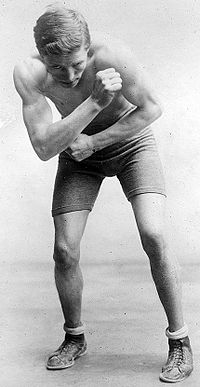
Ted "Kid" Lewis was renowned for his relentless, punishing and attacking style of fighting. The Kid turned professional at the age of 14, and within five years had won the British and European Featherweight World Titles.
Lewis moved to the United States and earned acclaim by winning the world title twice and taking part in a legendary 20-fight rivalry against Jack Britton. In his first World Title win over Britton, Lewis became the first Englishman to win a world title in the united States.
After the First World War, Lewis would return to England and win six more British and European World titles.
"The Kid" retired with a career record of 227-40-23 and won nine world titles ranging from Featherweight to Middleweight. He was elected into the International Boxing Hall of Fame in 1992.
Boxing historian Bert Sugar listed Lewis at number 33 in his list of the 100 greatest fighters of all-time, while Mike Tyson described Ted as "probably the greatest fighter to come out of Britain."
1. John "Jack" Broughton
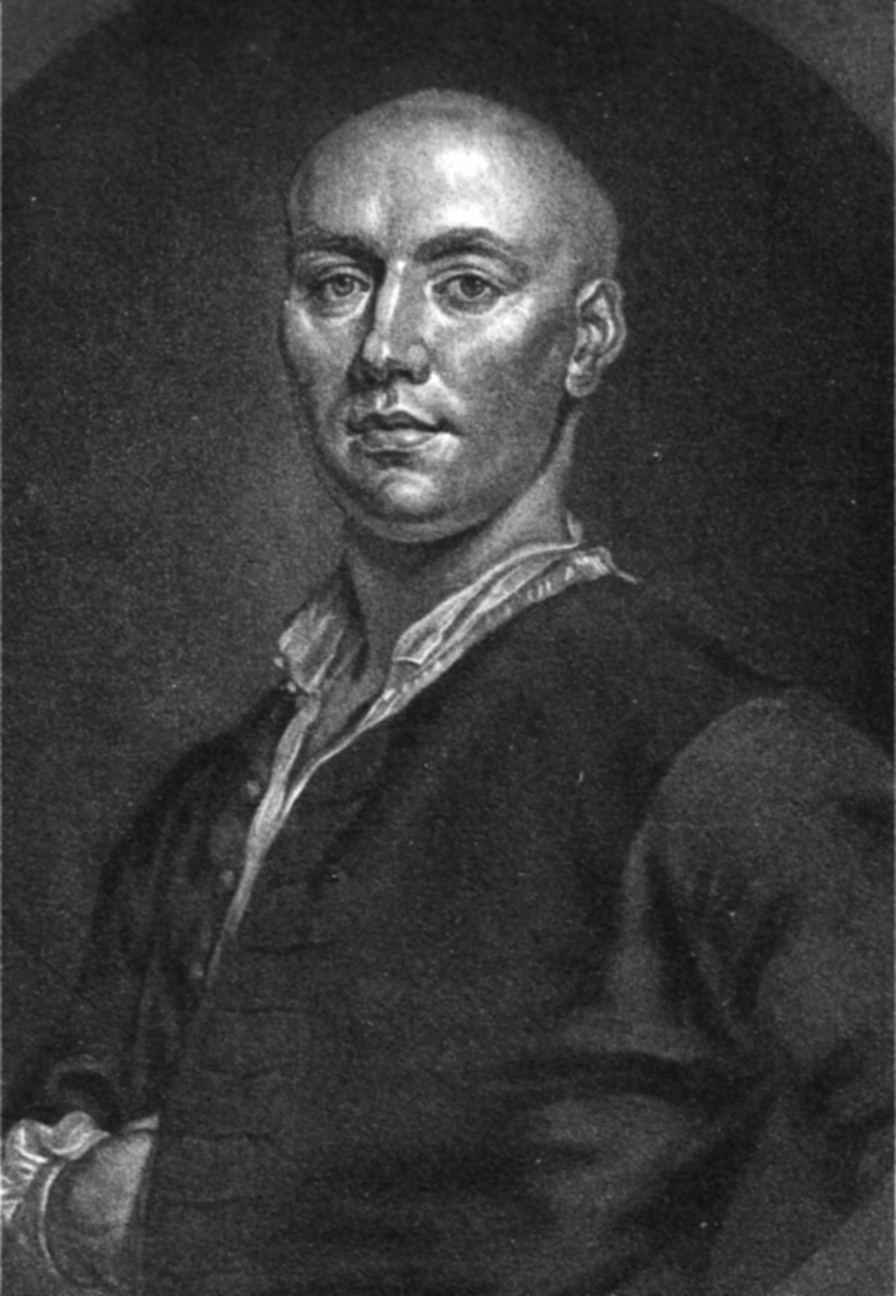
John "Jack" Broughton was a true pioneer of the sport. Broughton was the first person credited with standardizing a set of rules for boxing. "The Broughton Rules" were widely accepted and later contributed to the development of "The Marquis of Queensbury Rules" that are still used worldwide. Broughton is also credited with inventing the first form of padded boxing glove, he drew inspiration from a statue of a Greek boxer wearing the Cestus.
Broughton built a fearsome reputation for himself on the amateur scene before the Duke of Cumberland to enter the professional game.
In a remarkable fighting career that spanned 42 years (1725-1767) Broughton never lost a fight, and held the undisputed Bare'Knuckle Championship of England for over 20 years over two separate reigns.
Broughton invented his pioneer rules after a tragic fight in 1741, when he beat George Stevenson to death over 35 brutal minutes. The death of Stevenson took its toll and Broughton retired for two years before returning with his new rules. Four years later Broughton pioneered his mufflers, later known as boxing gloves that would revolutionize safety in the sport.
John "Jack" Broughton was among the original inductees in the International Boxing Hall of Fame.